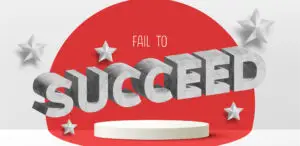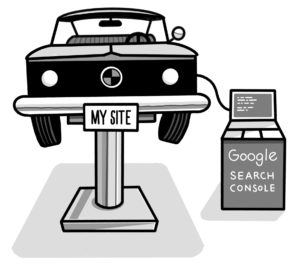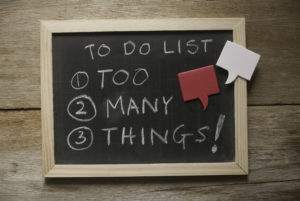 When it comes to beginning a new project, I’ve seen many people talk for years about their plans to do something they’ve been dreaming about, but they never seem to get started. The reality is that every person has time for the things they prioritize. If a goal is truly important to you, you’ll do what’s necessary to make the time to achieve it.
When it comes to beginning a new project, I’ve seen many people talk for years about their plans to do something they’ve been dreaming about, but they never seem to get started. The reality is that every person has time for the things they prioritize. If a goal is truly important to you, you’ll do what’s necessary to make the time to achieve it.
Have you considered that what might really be stopping you from doing what’s needed is the chance that you will fail at your goal. It can feel more satisfying to dream about what could someday be rather than to take the difficult steps to get there.
Failing Forward
Failure is part of the process of reaching your goals, and sometimes that process is much longer and more difficult than we’d like it to be. When I make a mistake and learn from it, I call this failing forward. It’s a vital part of the learning process, and it develops your skills and gives you a better understanding of what you’re trying to achieve. In the unlikely event that everything you do is successful, you won’t learn why it was successful.
If you’ve reached any level of success in business, you probably already understand how important failure is to gain success. Failure is widely acknowledged among entrepreneurs as one of the most important steps to success. But I believe it has benefits beyond the learning experiences it provides. It helps to keep you humble, especially when you’ve begun to see more success in your business. It’s dangerous to think you’ve reached a point in your career where you’re beyond failure. Recognizing that it can happen at any time will help you to assess risks more clearly and adapt when things do go wrong.
Why take ownership of your failure
When entrepreneurs become successful, it can become much more difficult to own up to failure. I’ve seen too many business owners who are quick to praise the value of failure to others but are unwilling to admit to their own current mistakes. But failure can be a powerful leadership tool within your business.
By being willing to admit when you’ve made a mistake, you make it clear to your team that you’re human and fallible, which will make your team members more willing to admit their own mistakes when they happen. As a leader, your behavior is a model for how your team will behave, and by sweeping your mistakes under the rug, you encourage them to do the same. But if you own up to your mistakes, you give yourself the opportunity to grow from them and model the behavior you want to see from your team, which will allow them to learn from their mistakes as well.
So the next time you think about a goal you’ve been wanting to achieve but haven’t started yet, examine what’s getting in your way: is it a problem of priorities, or are you intimidated by the journey it will take to get there and the failures you will face along the way? And when you do make mistakes, as you inevitably will in your business and throughout your life, own up to them so you and others can learn from these mistakes. This will allow you and your team members to continue to develop professionally, expand your skill sets, and ultimately grow in your ability to accept failure with a positive perspective.




